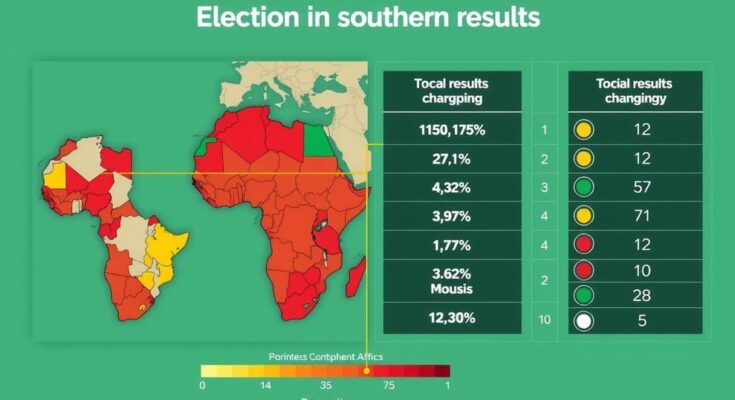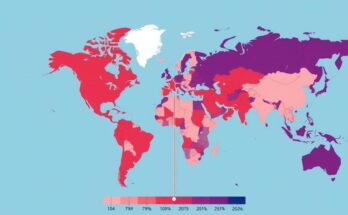The 2024 elections in Southern Africa marked a significant shift in political power, with historic liberation parties losing ground to opposition movements amid changing demographics. Countries struggled with economic issues impacting young voters, who prioritized effective governance over legacy. Notable defeats in Botswana and South Africa signaled a possible shift towards greater accountability and responsiveness in leadership.
In the 2024 elections held across Southern Africa, significant political shifts occurred, highlighting the waning influence of long-standing liberation parties amidst changing voter demographics. Countries like Botswana, South Africa, and Namibia witnessed unprecedented challenges to the ruling parties, particularly in urban areas. Increasingly, young voters, disillusioned by economic hardships and lacking personal connections to the historic struggles against colonialism, prioritized government performance over historical credentials. This generational shift underscores a movement towards accountability and change as economic realities put pressure on once-dominant political entities.
Botswana stood out with the most dramatic election outcome, as the opposition achieved a landslide victory over the Botswana Democratic Party, which had held power for nearly six decades. In South Africa, the African National Congress (ANC), once revered for its role in ending apartheid, saw its majority diminished sharply, prompting a need for coalition governance for the first time in decades. Despite its narrow retention of power, Namibia’s SWAPO party experienced significant losses, signaling a potential transformation in political paradigms.
Moreover, electoral turmoil sparked protests in Mozambique following elections that kept the long-governing Frelimo party in power, indicative of rising public dissent across the region. The sentiment of a need for responsive governance is echoed by analysts who note that citizens are increasingly voicing their demands for accountability among leaders.
Southern Africa has historically maintained a degree of democratic stability in contrast to other regions within the continent, which are often plagued by military coups and armed conflict. The elections in 2024 emerged as a crucial moment for the region, as the traditional political strongholds faced unprecedented challenges from growing opposition movements. The decline in support for liberation parties appears connected to the changing voter landscape, particularly with the rise of a younger electorate that predominantly lacks memories of the colonial past that these parties capitalized on to retain power. As issues surrounding economic growth and youth unemployment loom large, citizens have begun to prioritize effective governance over ideological loyalty to historical liberation narratives.
The 2024 elections in Southern Africa reflected a watershed moment in the region’s political landscape, as historical liberation parties grappled with declining support and the rising expectations of younger voters. The shift signals a deeper demand for accountability and responsive governance. The outcomes in various nations such as Botswana, South Africa, and Namibia indicate that the need for change is resonating with citizens, potentially marking the beginning of a new political era where performance and government responsiveness take precedence over historical allegiance.
Original Source: apnews.com




